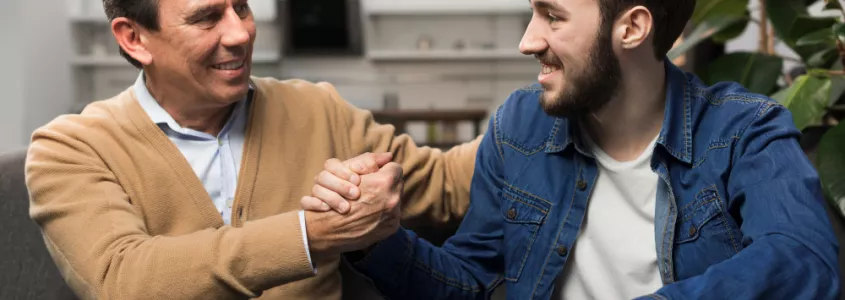
Table of contents
More and more people, worried about what will happen to their assets when they pass away and faced with the urgent need to help their children and grandchildren, for example, to buy a house or pay for their studies, decide to carry out their inheritance during their lifetime. A concept that generates a lot of doubts and that we would like to clarify here.
What are lifetime inheritances?
First of all, the concept of inheriting during life is not semantically correct, even if it is used colloquially. This is mainly due to the fact that inheritance is irretrievably associated with the death of the owner of the assets and their subsequent distribution.
This is why it is correct to speak of a living donation. Specifically, we refer to a legal act by which one person (the donor) transfers his assets and rights to another (the donee). Generally, his forced heirs, such as his children, if he has any.
How to make a living inheritance?
Executing an inheritance or gift during lifetime often has several benefits. For example, it is the best way to provide immediate help to the heirs at the time when they need it most. In addition, in our experience, it reduces the number of family conflicts after the death of the estate holder and allows the estate holder to impose conditions. He or she can also supervise that everything is done the way he or she really wants it to be done.
Having clarified this, it should be said that making a living donation or inheritance is even simpler than dealing with a conventional inheritance. These are the recommended and mandatory steps.
Seek prior legal advice
Before starting the procedure, it is best to seek the services of a lawyer specialised in inheritance to analyse the particular situation. Not only because he or she will be able to inform you of the tax and legal implications, but also because he or she will be able to help you to carry out the division in an equitable manner among the forced heirs. This is essential to avoid someone contesting the donation during their lifetime, which could happen.
Determining the assets to be donated
Normally, it is a large sum of money or the inheritance of a house during your lifetime, for example. However, it can also be any other real estate (land, business premises, etc.), shares or company shares, or even jewellery, vehicles or works of art.
Going to the notary
The notary is responsible for drawing up the public deed, which is essential in order to pay the compulsory taxes. To do this, all you need to do is make an appointment with the notary, identify the donor and the donee and establish the conditions under which the inheritance will be made during your lifetime.
Paying taxes
Once the donation has been received in life, the donee is obliged to pay the inheritance and gift tax within 30 calendar days. In this regard, it is worth remembering that the amount depends on the autonomous community in which the person resides, as many of them offer reductions of up to 99%.
On the other hand, the donor will have to pay the tax on the increase in value of urban land, more popularly known as municipal capital gains tax, if what has been donated is real estate.
Characteristics of inheritance or donation during life
In order to be considered as an inheritance or donation during the donor's lifetime, the donor cannot receive any financial consideration for the transfer of the property or right. Furthermore, it is a decision that, once it has been notarised, is irrevocable.
In this sense, the law only provides for the possibility of recovering such property or rights in the event that the donee breaches the specified conditions or commits serious acts of ingratitude against the donor. For example, refusing to provide food in case of need or making an attempt on the donor's life.
What is the difference between a living donation and an inheritance?
Fundamentally, in the moment at which it is carried out, since the donation during life does not require the death of the owner of the assets or rights in order to proceed to their distribution. There are also differences in the procedure, as the donation requires a public deed and acceptance by the donee. Traditional inheritance, on the other hand, is executed by will or, if the deceased did not leave a will, according to the provisions of the law.
In addition, there is another difference to be taken into account. Since the donor is alive at the time of this procedure, it is normal for part of his or her assets to be set aside to ensure his or her well-being during his or her final years. For example, their habitual residence and some savings. For this reason, it is normal that, when he dies, it will be necessary to distribute the inheritance left to him.
Having said that, we believe we have made it clear that you can inherit during your lifetime by means of a gift. If you have any further questions, please contact our lawyers specialised in inheritance. We will be happy to help you in any way we can.

"Anywhere in Spain"
With our online appointment system you will have immediate advice without the need for face-to-face visits or travel.
One of our lawyers specialized in your area of interest will contact you to formalize an appointment and make your consultation by video call.

Add new comment